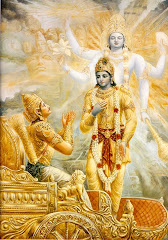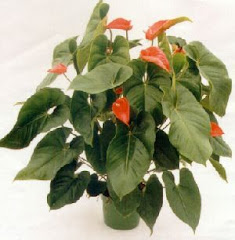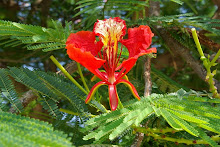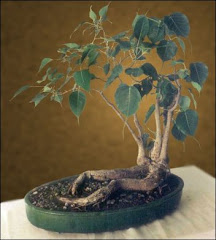Author's
Note: As promised, I am back with the 2nd
part of this series. In this post, I will attempt to discuss the etymology of the word
'Chinky'.
You may read the 1st part: HERE.
Chinky - this word
as you may know has become well entrenched and keeps cropping up everywhere:
media, talk shows, blogs, newspapers, magazines, interviews and what have you.
Talking heads go blue in the face trying to emphasize how racist
Indians are ... since 'they refer to people from the North-Eastern
parts of the country as Chinky'.
But for
whatever reason, none have so far tried to understand the etymology of
this word or even made an attempt to. So lets do it! [Etymology is the
study of the history of words, their origins, and how their form and meaning
have changed over time.]
'Chink' (also: chinki, chinky, chinkie) is an English
ethnic slur referring mainly to a person of Chinese ethnicity but sometimes
generalized to refer to any person of East Asian descent. The use of the term
is broadly considered offensive and has been compared in degree of
offensiveness to terms such as 'nigger' and 'kike'.
However, the word 'Chinky' has its origins
in the Indian reference to Chinese people.
Since the times of the Mauryan Empire (i.e. over two
millennium ago) - there was continual contact between ancient India and ancient
China. As for what the maps of ancient India and ancient China looked like,
lets put that aside for a while.
In the North Indian languages (and even in Bengali), China
is referred to as 'Cheen'.
And her people with the suffix 'ke-log', therefore
'cheen-ke-log' literally translates as 'people of/from China'.
Chronologically this word (cheen-ke-log) was popularly shortened
to 'cheen-ke'. [Just like say, thank you has been shortened to thanks.]
'Cheen-ke' meant: anything of/from China (usually but not limited
to people).
However, with the subsequent English colonization of India, one
can speculate that: the (Indian) word 'cheen-ke' came to be adopted by
the Englishmen, who then proceeded to develop their own connotations for
it. [What those connotations were I leave you to speculate in solitude - in light of words like: Nigger, Kike, Black, Brown, White, Yellow, Coolie, and the
like.]
The word,
Chink's first usage is recorded from about 1890 but 'Chinky' had first
appeared in print, as far as can be ascertained, in 1878. Chinky is
still used in Britain as a nickname for Chinese food.
Around the turn of the 20th century, Chinese immigration
was perceived as a threat to the living standards of whites in North America
and other similar nations. The Chinese were seen as invasive, and this mounting
xenophobia culminated in Yellow Peril hysteria. In the United States,
the Chinese Exclusion Act was passed, banning Chinese immigration,
within a few years after the first recorded use of Chink. The
dehumanizing use of the word is argued by one author to be a racist justifier
for the passage of the Exclusion Act. [However, a persistent labor shortage on
the west coast meant that Chinese workers were still needed there; and
apparently Alaskan fish canneries were so short of workers, that appeals were
submitted to the US Congress to amend the Exclusion Act - but sadly nothing was
done to quell the destructive xenophobic psychology.]
When Edmund A. Smith patented his mechanized
fish-butchering machine in 1905, he named it the Iron Chink; some saw
this as symbolic of the anti-Chinese racism during the era. Usage of the word
(Chink) continued, such as with the story "The Chink and the Child"
by Thomas Burke, later adapted to film by D.W. Griffith.
Although Chink originally referred only to those
appearing to be of Chinese descent, the meaning expanded sometime in the 1940s
to include other people of East Asian descent. During the Korean War and the
Vietnam War, the word was frequently used to refer to Korean and
Vietnamese soldiers, with numerous examples of news reports attesting to this.
In addition, literature and film about the Vietnam War also contain examples of
this usage of Chink, including the 1986 film "Platoon" and the 1970s
play (and later film) "Sticks and Bones."
As in
other English-speaking countries, Chinese people were belittled in Australia
too. The terms Chinaman and Chink became intertwined with one
another, as many Australians used both of them with hostile intent when
referring to members of the country's Chinese population - which had swelled
significantly during the Gold Rush era of the 1850s and 1860s.
Assaults
on Chinese miners and racially motivated riots and public disturbances were not
infrequent occurrences in Australia's mining districts in the second half of
the 19th century. There
was some resentment too, of the fact that Chinese miners and labourers tended
to send their earnings back home to their families in China rather than
spending them then and there, and supporting the local economy.
In the popular Sydney Bulletin magazine in 1887, one
author wrote: "No nigger, no chink, no lascar, no kanaka [laborer from the
South Sea Islands], no purveyor of cheap labour, is an Australian." This
was not an isolated opinion. Eventually, since-repealed federal government
legislation was passed to restrict non-white immigration and thus protect the
jobs of Anglo-Celtic Australian workers from 'undesirable' competition.
As with
other ethnic slurs, associations with violence and discrimination are often
made which may amount to hate crimes. Needless to say, the Chinese
people (as well as other people of East Asian descent) considered the term offensive
from the outset. Unfortunately, this psychology is still thriving well
in the United States, Europe and Australia; so much so that even during the
2012 London Olympics there was an incident involving a sportsman of Chinese
descent, if you remember? Else do look it up.
With
this, I believe we can clearly understand the etymology of this term - Chinky;
that is to say, how this term came into being, who coined it and
the psychology behind it (that helped in its coining.)
With a lot of sadness in my heart, I would also like to
add that, WE (Indians) - not only let our lands be colonized, but (what was and is much
worse) WE allowed our minds to be colonized too.
And WE have not been able to shirk this colonization off completely.
In fact, some of us are so much in thrall of it that whether consciously or not, they have been welcoming it and emulating it too.
Who coined the phrase, 'people with
mongoloid features'? Certainly, no Indian! But some of us have been using it -
nonchalantly :(
That is
to say: some of us have been adopting aspects of an alien culture blindly,
simply aping without giving it a thought. [My blogger friend, Sunil Balani
(of expressions fame) has
captured this very aptly as " ... a distorted form of collectivism attenuated by
conceit of omniscience."]
Racism -
is a mindset that has been born out of, is part of, and has
come from a culture that has indulged in colonization and slave-taking.
Now, does India or Indians have such a heritage or history?
No, neither India nor Indians have such a history. Therefore, the real
connotations of this word - Chinky, or rather the psychology behind it
- IS unknown to us. And no matter how much we endeavour, we will never
really know.
And though
I have said this before, let me say it again: this term 'Chinky' is NOT
homegrown but a colonial hangover that has been lovingly adopted by
neo-Curzons - who love to 'think in English'. [Do read Part-I of
this series HERE,
so as to understand what I mean by neo-Curzon.]
However, when I say 'think in English' - it should
not be construed as my attack on the English language per se. You see, all I am trying to understand is: how did terms like Bitch, SoB, Coolie,
Black, Brown, Fuck, Fucking, Sex-Worker, Retard, Loser, Queer, Adult Porn, Child Porn,
Paedophilia, et al enter OUR vocabulary. ['Coz we did not even have such concepts
in the first place!]
Let me
elaborate on a couple of specific examples. Have you ever wondered as to how this word 'dialect' came into use, or why it has been rolling off our tongues effortlessly?
I am
asking since we simply do not have this concept of dialect! For us, it
has always been 'bhasha' or language. Many bhasha-s have
co-existed in this land, and even if a handful of people spoke it, it was still bhasha
(language) - never 'dialect'. This very concept of dialect is alien to us, so
why have we been using it?
I would
say: 'thinking in English' - is the cause.
Lets come to another much-in-use phrase: "sibling
thing creeping into a marriage."
Now, though a
lot of people (especially high-profile ones, like: sundry Page 3 birds, matinee idols,
know-it-all celebrities, media savvy authors and hot-shot journalists) have been using this phrase - left, right and center; I
am still keen to know your views on it.
'Coz to
my mind: a sibling and a spouse are two totally different entities that cannot
and should not be mixed - if you know what I mean. A marriage has many
sides or dimensions, and love is an emotion with myriad hues and shades;
but how can "a sibling thing creep into a marriage"??
Frankly,
I have not a clue. But then yours truly is not a Page 3 bird, matinee idol,
know-it-all celebrity, (self-proclaimed) conscious-keeper author or a much fawned-over journalist :)
[Note: Perhaps,
such a phrase can only emanate from a culture that sees a mother
breast-feeding her 2 or 3 year-old son, immediately jumps to the conclusion
that it is 'sexual exploitation' or 'pedophilia, or some such ... and promptly goes to town about it! Frankly, it leaves
us speechless, to say the least. Therefore, it is best that WE remain careful,
choosy and alert about anything emanating from such a land and culture ... and
think twice before adopting aspects of it blindly. In short: WE must refrain
from simply aping without giving it a thought.]
Here's
some mind-chow for you, until the next post:
1. Why do terms like - Chinky
and Racism - rear their ugly heads every time there is a discussion
about Indians that hail from the North-Eastern part of this country?
2. Are we adopting aspects of an
alien culture blindly? Simply aping (that too nonchalantly) and without giving it a thought?
3. But what mystifies me no end is to
see respected western newspapers, magazines and books spending reams and
reams on 'how racist Indians are towards people hailing from the North-East'; while
simultaneously choosing to ignore not only their own glorious history of
rabid xenophobic psychology but also the veritable wealth of racist
terminology - that have abounded and still abounds - in the English-speaking
world (for centuries)!!
Why this Kolaveri Di? :) What say you??
4. I am even more mystified as to why
respected and renowned western scholars, analysts, experts, authors,
thinking tanks (as opposed to Patton tanks) and journalists too never tire of
speaking or writing about 'how racist Indians are towards people hailing from
the North-East'? [While maintaining a studied silence about the glorious
history and veritable wealth of youknowwhat - that they have been and are sitting upon ... especially since all of that youknowwhat is thriving very well. *Scratching my head*]
5. Also, if you have noticed, certain respected
and renowned Indian scholars, analysts, experts, activists, authors and journalists
too never tire of speaking or writing about 'how racist Indians are towards people
hailing from the North-East'; they even speak the same language as their
counterparts half-way around the globe!!
Umm, does that mean telepathy
is a criteria for anything, research grants and patronage included?
6. How is a mindset created?
Parting
shot: The famous Bhajji episode,
involving a dread-locked cricketer from the land of the kangaroos, created much
storm; with racism making it to the airwaves and news-prints all over the
globe - quite predictably, I would say.
But while
many fingers were conveniently pointed at Bhajji and through him, towards Indians in
general, and while several voice-boxes went hoarse talking about 'the racist
attitude of Indians'; strangely, none brought up the plight of the so-called Aborigines
in that shining kangaroo-infested country, to which even the purported 'victim'
- the dread-locked cricketer himself, belonged !! [Even HE never spoke about it
!!!]
Now, we all are quite familiar with the popular saying, 'there is much darkness under the lamp', aren't we?
Here: lamp is a metaphor for people who do not see their own shortcomings, and
utter the 'all is well' mantra instead. Meaning: they preach to others
what they do not practice at home.
Wonder what
dark shadows can be found under all those glittering lamps of freedom,
democracy and equal rights - that certain nations and scholars hold aloft and zealously
guard?
And last but not the least, does this word, racism, help certain folks and
nations to project rather deflect their own ills, on us? Does all that convenient finger-pointing help in making those chimera-like glittering lamps to appear real? What do you think??
(More
later…)
BlogAdda's Spicy take: In the wake of the riots in Assam and the panic prevailing among north-easterners from the city of Bangalore, Roshmi shares her view on racism that our fellow countrymen have to face. She explains the etymology and the psychology of why people from the seven states in the north-east are called Chinkies.
Photograph: Combat at Guangzhou (Canton)
during the Second Opium War. Picture courtesy: link. The Opium Wars also
known as the Anglo-Chinese Wars, divided into the First Opium War from 1839 -
1842 and the Second Opium War from 1856 - 1860.














thank you for that... enlightening!
ReplyDeleteWelcome!
ReplyDelete